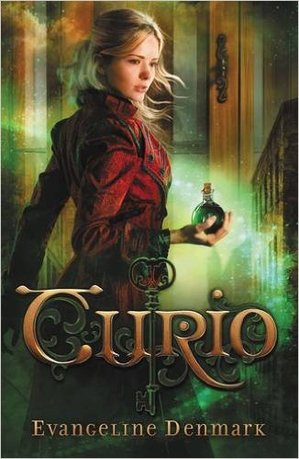 Interview by Brock Eastman Featuring Curio “From the moment I slipped into the pages of Curio I was transported. Evangeline Denmark has written an intricately webbed story that will make your heart race and your mind thrill. But, be prepared. The Mad Tock, powerful chemists, and wicked porcies roam these pages. Danger, adventure, romance, and imaginative settings galore! I haven’t been so enthralled since my childhood favorites of The Labyrinth and The Neverending Story.” ~Brandy Vallance, award winning author of The Covered Deep Evangeline Denmark isn’t exactly new to the world of speculative fiction. In fact, she grew up in it. The daughter of bestselling fantasy novelist Donita K. Paul, Evangeline is quick to credit her mother for fostering a love of the written word. “She read to my brother and me every night—everything from picture books to the Bible to The Hobbit.” Mother and daughter collaborated on two picture books, The Dragon and the Turtle and The Dragon and the Turtle Go on Safari, published by Waterbrook Press, the Penguin Random House division that published Donita K. Paul’s popular DragonKeeper Chronicles series. I’ve come to know Evangeline through book signings and school literacy events in the town we both call home. She and her mother seem to attract fantasy fans, enthusiastic readers, and budding writers eager to discuss the ins and outs of fiction. The excitement is mutual as the two eagerly encourage students and readers of all ages to delve deep into literary pursuits. I sat down with Evangeline at Jives Coffee Lounge, a Colorado Springs café decorated in the Steampunk genre aesthetic, heavy on the industrial feel with exposed copper piping, metal cage light fixtures, and a gear-shaped stage. The ambiance was perfect to discuss Evangeline’s debut Young Adult Steampunk Fantasy novel, Curio. Brock: Give us one fact about each main character that no one else knows. Evangeline: Grey’s brother, Banner, means everything to her. Before Whit started working in the mines, he had never been out of Mercury City. Blaise’s father is part of a matrilineal society. (purposefully vague *waggles eyebrows*) Brock: In three sentences, what is this book about? Evangeline: To avoid the reaches of the corrupt Chemist Council, Grey Haward escapes into an enchanted curio cabinet in her grandfather’s store. Inside the cabinet, Grey discovers a world of living porcelain and clockwork people on the verge of revolution and becomes embroiled in their fight. To get home, she must find the only other human, a boy disguised as the Mad Tock, whose secrets stretch from one world into the next. Brock: Do you outline the entire book before starting, or do you write as you go and let the characters take control of the story? Evangeline: I have an idea where the story is going but I don’t outline. I like to be surprised. Or rather, I don’t have any choice but to be surprised. That’s how my brain works. Brock: So why the change from picture books to Young Adult novels? Evangeline: Actually novels have been my focus since I began pursuing writing for publication. The Dragon and Turtle books were fun opportunities that arose thanks to my mom’s dragon-loving fan base, but the stories that find their way into my brain are usually better suited to a longer format and an older audience. Brock: What is the biggest challenge involved in writing for the Young Adult market? Why do you enjoy it? Evangeline: Knowing the struggles and pressures young people face and wanting to do right by them. Wanting to say with my words and my characters’ experiences, “I see you. I know what it is to feel that you don’t belong, that you have to hide who you truly are, and that if anybody knew the real you, they’d turn away.” One of fiction’s most powerful tools is the capacity to let a reader know she or he is not alone. Someone else has felt the same way. As for what I enjoy most, it’s the freedom of emotion that comes with writing in the Young Adult genre. As adults we kind of lock things away because we have to function. And okay, that’s necessary to some extent. Otherwise we’d be like Sadness in Pixar’s Inside Out, flat on our backs with one foot in the air, moaning, “I’m too sad to walk.” But the point of that movie, and the point I’m trying to make, is that there’s strength in acknowledging our emotions and how they shape who we are. YA provides a canvas for exploring all the feels. Brock: What appeals to you most about steampunk as a genre? Evangeline: At first it was the aesthetic. Who doesn’t like corsets, top hats, and goggles? And I enjoyed the creative take on history and outside-the-mold characters. But it’s the punk aspect that hit home with me. Anything “punk” whether we’re talking punk rock or cyberpunk, is going to have an element of social challenge. It’s a sharpened viewpoint that leans toward cynicism and anarchy, but can also uncovers inequality and injustice, which is as necessary now as it was when Charles Dickins wrote. Brock: Can you give us a brief summary of what the book is about? Evangeline: To avoid the reaches of the corrupt Chemist Council, Grey Haward escapes into an enchanted curio cabinet in her grandfather’s store. Inside the cabinet, Grey discovers a world of living porcelain and clockwork people on the verge of revolution and becomes embroiled in their fight. To get home, she must find the only other human, a boy disguised as the Mad Tock, whose secrets stretch from one world into the next. Brock: A large portion of the book takes place inside this enchanted cabinet. How did you come up with that idea? Evangeline: I remember the exact moment when Curio began. I was driving and the word curio popped into my head. I instantly fell in love with the concept of curios and curio cabinets and knew I had to write a story about them. From there I moved on to thinking about the word curiosity and came up with the idea of a human girl trapped in a curio cabinet who would be a curiosity to the denizens of that world—porcelain and clockwork creatures. Brock: Tell us about the main characters. Who are they? What makes them unique? Evangeline: Grey Haward is painfully aware that her height and stature draw attention in her home, Mercury City. What she doesn’t understand is why she’s compelled to intervene when her best friend is charged with breaking the law or why a strange mark shows up on her skin the morning after her rebellion. Grey’s family is hiding a secret, and the truth of Grey’s identity will change her world and another. Whit Bryacre is only a few months out of school and working in the mines when his attempt to rescue Grey lands him in trouble for breaking Mercury’s harsh laws. Angry and afraid, Whit embarks on a path of resistance that could cost him his life. Blaise Amintore has been trapped for one hundred years. He spends his time plotting revolution against the cruel ruling class of porcelains and fixing broken tocks and porcies desperate enough to seek help from the Mad Tock. But when another human arrives in Blaise’s world, both the revolution and Blaise’s personal crusade kick into high gear. Brock: Although there are two male point-of-view characters, Grey Haward is clearly the protagonist. What are some critical aspects of crafting a heroine for you? Evangeline: I have a passion for seeing girls and women embrace the many aspects of who they are, not just the roles that have been traditionally assigned to them. As human beings we have such varying gifts and strengths, and to deny someone’s contribution to the world based on their gender is ridiculous and harmful. Grey starts out in a very repressed environment where women are restricted and then finds herself in a place where women are objectified. Both societies are deeply flawed. When Grey steps into the destiny that is in her blood, she throws off the false identity constructs that have been forced on her and becomes the justice-minded warrior she was meant to be. Brock: Let’s talk a little about the process of writing Curio. Any certain research required for the book, or is it all from your imagination? Evangeline: I researched mining, alchemy, and Colorado’s early days as a territory. I also watched some of Jay Leno’s YouTube videos about steam cars and rubbed my own ceramic dishes together (gently!) to hear how porcie “applause” would sound. Brock: You mentioned the real history of Colorado. How much leeway did you give yourself with facts? Evangeline: Curio and the prequel novella, Mark of Blood and Alchemy, take place in alternate history, so a real time and place in our world, but with completely made-up elements and events that have affected the world. Steampunk and Clockpunk lend themselves to wild liberties with such small matters as facts and reality. I had great fun making gauntlet writers—the equivalent of tablets in the early 1900s American West—and a time machine in Mark of Blood and Alchemy that consists of a water clock and a funicular. Brock: Tell us a little more about the prequel? Evangeline: Mark of Blood and Alchemy is available now as an ebook. The novella gives the origins of the Chemists and the Defenders and follows Grey’s grandfather, Olan, as a young man fleeing a plague and tangling with a group of “magickers.” It’s short, full of action, intrigue, romance, and some fun clockpunk devices. Brock: What is your favorite genre to write for? Evangeline: I love fiction with supernatural elements, whether it’s YA, romance, or steampunk. Brock: How does it feel to have your work published? Evangeline: I’ve had picture books published, but writing novels was always my goal. For a long time I struggled with trying to fit my stories into a certain mold that I thought was expected of me. This was a terrible idea, and my novels kept spilling over out of the box and getting wild and weird. When I finally let go of those expectations and embraced the wanderings of my imagination, I wrote the project that got a contract. It feels amazing to see my name on the cover of a book that reflects my creativity unleashed. Brock: Finally, how do you believe this story relates to the lives of readers? Evangeline: Questioning the way things work, whether that’s a scientific principle or a political system, is how we move forward as individuals, as societies, and as a species. It’s hard work and it’s often painful, but it must be done. When we wrestle with the tough questions—not only in our personal experience but on behalf of others—it becomes harder and harder to ignore things like poverty, injustice, and inequality. I believe teens have a deep capacity for empathy and tapping into that awareness is powerful. I hope Curio helps my readers question the status quo and connect with their compassion. Brock: Thank you Evangeline, for giving us an inside look only an author can. I’ve been following Donita Paul’s career for many years, and I have no doubt Evangeline’s career will be equally filled with amazing worlds, dazzling characters, and stories to awaken our imaginations. 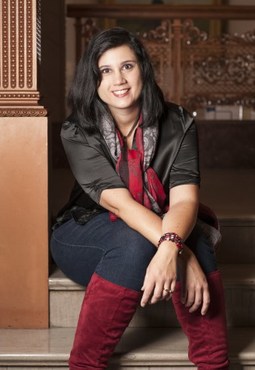 Author website: EvangelineDenmark.com Author Facebook: facebook.com/AuthorEvangelineDenmark/?fref=ts Author Twitter: twitter.com/EvangelineD Author Pinterest: pinterest.com/evangelineden/ Author Instagram: instagram.com/evangelinedenmark/
0 Comments
As a Quester have you?
If you've done all of the above (I know it's a huge list) you can earn a FREE #Questers membership. Just let me know when you've completed the above tasks! Laura Martin the author of the Edge of Extinction series sent me an Advanced Reader Copy of Book 2: Code Name Flood a few months back and I have to say, it's a great addition and conclusion to Book 1: The Ark Plan. If your kids love dinosaurs then this series is for them, if they love adventure then this series is for them, if they love post-apocalyptic books then this series if for them. A fantastic mix of Jurassic Park and City of Ember, the Edge of Extinction books will be new favorites of kids and parents alike.
If you haven't read my Q&A with Laura Martin about The Ark Plan, check it out here. And take a moment and check out Laura's post on the evolution of a book cover. It's always fun to see how a cover comes together. 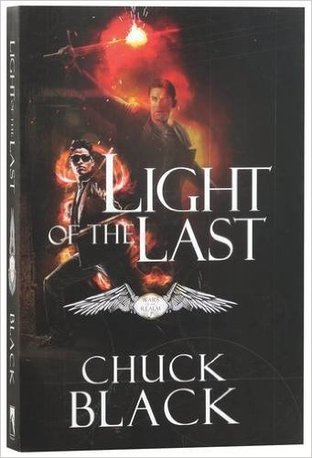 Interview by Brock Eastman Featuring the Light of the Last To Fight What Others Can’t You Must See What Others Don’t After an accident left him temporarily blind, Drew Carter didn’t just regain his sight. He now sees what others can’t imagine–an entire spiritual realm of mighty beings at war. Forget the gift, Drew just wants his life back. Part of that involves Sydney Carlyle, a woman he is inexplicably drawn to. When he’s offered the chance to become a CIA agent, it seems the way to redeem his past. The only problem–his visions of the supernatural realm are increasing in frequency. It’s up to the warrior angel Validus and his hand-picked team of heavenly agents to protect the unbelieving Drew. Validus now knows that the young man is at the epicenter of a global spiritual war, and the angels must use a millennia of battle experience keep Drew alive, for the Fallen want him dead. Surrounded by spiritual warriors and targeted by demons, Drew’s faced with an impossible decision that will forever alter the destiny of America...and his own soul. Brock: What was your inspiration for writing the Wars of the Realm series? Chuck: I’ve always felt that if we could actually see the spiritual realm for just a few minutes, it would change the way we live our lives forever. This motivated me to create a semi-futuristic story that would follow the life of a young man who could see the raging battles between angels and demons. Brock: Tell us about the main characters. Who are they? What makes them unique? Chuck: Drew Carter is a young man with amazing potential, but is road-blocked by tragedy at every turn. An atheist with a good Samaritan heart, Drew has no idea that he will play a key role in fulfilling the End Times prophecy of the very book he considers mythology…the Bible. After a tragic accident leaves him blind, he slowly regains his sight and sees “invaders” that are influencing the affairs of men. Sydney Carlyle is the pursued and unwilling young Christian girl that gets caught up in Drew’s bizarre world of “alien invaders”. Her pure heart draws Drew to her even though she want’s nothing to do with him. And then there is Drew’s quirky genius friend, Benjamin Berg. Without Ben, the story wouldn’t happen. His intellect and savvy tech knowledge launch the three of them on a wild adventure that culminates in a global climax. But another key character throughout all three books is the angel warrior Validus. He is the last and least of God’s angels. We watch him rise in position and authority throughout six millennia until he becomes the North American Continental commander of the warrior class. Then he is “demoted” and reassigned to protect one single man…Drew Carter. Little does he realize it will be the most intense and challenging assignment of all ages. Brock: Give us one fact about each main character that no one else knows. Chuck: Drew Carter’s favorite movies are King Arthur, The Bourne Identity, and Pride and Prejudice, although he would never admit it. Sydney Carlyle is taking Tae Kwon Do classes without telling Drew. Benjamin Berg loves the Minions although he would never admit it. Validus marvels when he watches children play, wondering what it would have been like to be so small and so vulnerable. Brock: In three words, what is this book about? Chuck: Intense spiritual warfare Brock: Do you outline the entire book before starting, or do you write as you go and let the characters take control of the story? Chuck: I outline and create the primary scenes in my mind before I begin writing. Initially I am very plot driven. Then as the characters develop they literally take over the story, often giving new direction to the plot. In the end, the characters own the tale. Brock: How do you believe this story relates to the lives of readers? Chuck: Spiritual warfare is all around us all the time. My hope is that this story will open our eyes and inspire us to live like that warfare is real, as Jesus said it was. In the Air Force, fighter pilots have a saying, “Lose sight, lose fight.” That means that if a pilot is in a dogfight and he loses sight of the enemy, it is only a matter of seconds before he is dead. Often times as Christians we bee-bop through life ignorant and blind to the raging spiritual battle around us. I believe that if we lose sight of the enemy of God, we will lose the fight. This is evident in broken marriages, faltering churches, and young people leaving their faith in droves. I hope these books put a bullseye back on the enemy so we can stand victorious in Christ once again. Brock: What is your favorite genre to write for? Chuck: This is tough. My previous books didn’t really fit into any genre. They are historical allegorical fiction. I love writing allegories like those first twelve books, but the Wars of the Realm books in the suspense/thriller genre were extremely enjoyable too. I am also considering science fiction for my next books so I guess the answer is that I don’t know yet! Brock: What is the biblical background or basis for the series? Chuck: Modern day pre-tribulation. Brock: How many books are planned for the Wars of the Realm series? Chuck: Three Brock: Any certain research required for the book, or is it all from your imagination? Chuck: Light of the Last required quite a bit of research. I love detail and want my stories to be as accurate as possible. I did extensive research on Sobibor death camp in Poland, the CIA, Chicago, Camp David, and viruses. Brock: How do you strike the right balance in your book? Chuck: I can’t help it but I am a romantic at heart. All of my books have a measure of romance. I think romance is at the heart of everyone, including God. Why else would He liken the Church to being His bride? My wife however doesn’t like romance at all so she lets me know when I cross the line. She balances me. I also love action and details. I guess I’ve never thought about balance too much. It just happens because I’m a rather odd mix of it all. Brock: What do your readers think about your latest series? Chuck: I have had more enthusiasm from my readers for the Wars of the Realm books than any of my previous books. I have a bad habit of writing some major cliff hangers into my books. The response is pretty intense. I guess you could say they love to hate me and can’t wait for book number three. Brock: How does it feel to have your work published? Chuck: Light of the Last will be my fifteenth book published, and I can honestly say that I am as excited about this book as I was for my first one. God is so good! Brock: Why did you choose to focus on a male protagonist? Chuck: I needed a male protagonist because my message and purpose aligns with Scripture as a result. Saying any more than this would be a major spoiler. Brock: If your book changed as you wrote it, how is it different than how you originally planned? Chuck: The scope of the story exploded on me until I was struggling to contain it within the agreed upon length. This was unexpected but necessary to bring closure to the plot and characters. Brock: Were any scenes or characters cut from the book? Can you give an example? Chuck: There were a couple of short scenes that were cut to keep the length of the book within limits. One was a scene between Drew Carter and the eye examiner at the CIA medical evaluation facility. The examiner refused to believe that Drew’s eyes were healthy. One of the angels intervened to keep the doctor from discovering the truth about Drew. Brock: Is it difficult to be accurate to a biblical perspective or biblical facts when writing fantasy fiction? Chuck: In regard to spiritual warfare, the Bible allows a lot of interpretation and speculation. I tried very hard to let the scriptures be my boundaries that I would not violate and then allowed speculation to take me the rest of the way. Brock: How do you hope parents will use this book with their kids? Chuck: My books are YA. I hope that parents will use this book to open their kids eyes to the reality of spiritual warfare and prepare them for the roaring lion that awaits them. Brock: Where do you like to write? Chuck: In my mind. I love creating all the scenes and dialog lying in bed or driving on a long trip. When I sit at a computer I usually am just dictating from the story I’ve already written. That can happen anywhere, but usually it is sitting in my recliner near the fire place. Brock: Are you a full-time or part-time author/writer? Chuck: I am part time moving to full time. Brock: How long does it usually take you to write a single book? Chuck: Six months of consistent writing, four to five hours a day. Brock: What do you hope readers take away from the series? Chuck: I hope readers are inspired to jump on the adventure God has waiting for them. I hope they can fully believe that we are in a war but that we are not to be afraid for greater is He that is in us than he that is in the world! Brock: Expound on the spiritual themes in the series. Chuck: The major theme is spiritual warfare. Other themes are repentance, love, loss, faithfulness, reverence, freedom, salvation, and evangelism. Brock: What is your "how I got published" story? Chuck: I wrote my first book, Kingdom’s Edge, for my children in hopes of inspiring them to truly understand the supreme sacrifice of Jesus Christ and to open their eyes to spiritual warfare. After my wife read the story she encouraged me to publish the book so other families could enjoy and use the story with their children. I decided to self-publish this book and the next three. After five years of seeing God expand the reach of the series to families across the country I was exhausted and ready to turn it over to a publisher…if they wanted it. I asked a friend to make some calls and within a day I was talking to an editor from Multnomah Books. After a forty-five minute phone call, it was obvious that God was orchestrating events because Multnomah immediately caught the vision and offered a four book contract within the next few weeks. It was an intense and unusual journey to getting published especially since I didn’t really set out to be an author. Although I often refer to myself as an “accidental author”, I am grateful to the Lord for allowing me to minister to families and young people through my books. Brock: When did you realize you wanted to become a writer? Chuck: Once I could see that the first book I had written was having a spiritual impact on the readers. I would much rather write than speak. Brock: What are some of the strongest influences on your writing? Chuck: The Bible is number one, then my heart for family, marriage, and youth. Music also has a big influence on my writing. Brock: What’s your view on e-books and the new publishing revolution? Chuck: As an engineer and business owner, I learned quickly that only those businesses that embraced new technology survived. We must adapt and embrace the tech that is going to get life-changing stories into the hands of the next generation. Brock: What was your favorite book as a teen or child? Chuck: John Christopher’s the Tripod Trilogy Brock: In what ways does your faith impact how you approach writing? Chuck: My faith drives everything. It gives me motivation to know that I am doing something purposeful and eternal. Without faith, I wouldn’t write. So many of the popular dystopian series today appear to be so hopeless. It is my faith that drives me to inspire people to live victoriously for a great and good God. Brock: Coke or Pepsi? Chuck: Water☺ Brock: Soft shell or hard shell tacos? Chuck: Soft shell for sure. Brock: Favorite season? Chuck: Spring Brock: Do you have a favorite Bible verse? Chuck: Hebrews 4:12 and 1Peter 2:9. These are my two theme verses for my series. Brock: Favorite pasta dish? Chuck: Mostaccioli with Italian sausage Brock: Do you listen to music while you write? If so, what are some examples? Chuck: Yes! I have a Pandora station that plays adventure movie themes like Batman, Transformers, Avengers, and the Bourne Identity. It is very inspirational, but then later when I read my manuscript without the music it isn’t nearly as epic. I’ve hired my daughter to compose music for our audio dramas we’ve produced for each of the books and that helps. Of course the English voice actors with their cool accents don’t hurt either. Brock: If your life was a book, what would the title be? Chuck: An Ordinary Guy With and Extraordinary God Brock: What do you enjoy most about writing? Chuck: I love talking to young people about the Lord and books that inspire them to live great lives for His kingdom. I get to talk to thousands of families and young people from coast to coast and am so blessed to be able to share my enthusiasm for God in a way that they will take to heart. Thank you for the opportunity to share my heart with you and your readers! 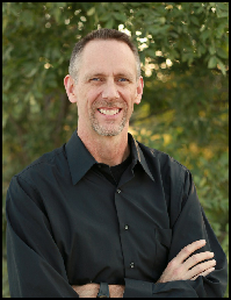 Author Website: www.WarsOfTheRealm.com Author Facebook: https://www.facebook.com/ChuckBlack.Author Author Twitter: https://twitter.com/chuckblack1 FREE #Questers Membership NOW. All the awesome behind the scenes information on #TQ4T and exclusive sneak peeks at Hope. Add the br to your cart and use code: MERRYCHRISTMAS HURRY OFFER EXPIRES 12/25/2016
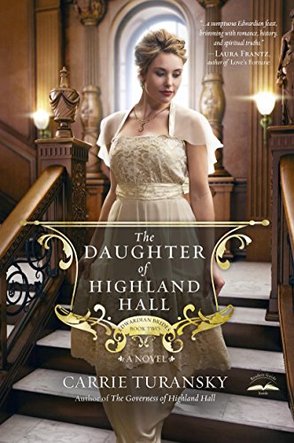 Interview by Brock Eastman Featuring The Daughter of Highland Hall Fans of Downton Abbey, Jane Eyre, and Pride & Prejudice will enjoy this pure and inspiring romance taking place in Edwardian England amid a clash of cultures and changing times. Eighteen-year-old Katherine Ramsey travels to London with her family to make her debut into society and hopefully find her future husband. Her overbearing aunt insists she must secure a proposal from a wealthy young man who is in line to inherit his father’s title and estate. But Katherine questions her aunt’s plans when she gets to know Jonathan Foster, a handsome medical student and strong Christian who is determined to protect the poor and vulnerable in London’s East End. When a family scandal puts a damper on Katherine’s hopes for the season, she has time to volunteer with Jonathan, caring for children in one of London’s poorest areas, and romance blossoms. Katherine’s faith grows and she begins to envision a different future with Jonathan. But when Katherine’s work in the East End puts her in danger, Jonathan distances himself from Katherine to protect her. A wealthy suitor reappears, and Katherine must choose which path to follow. “Giving vivid entry into an Edwardian England setting, from genteel ballrooms to the gritty streets of London’s East End, author Carrie Turansky has created a cast of multilayered, delightfully written characters I found engaging from beginning to end. The Daughter of Highland Hall is at its heart a story of personal courage, one sure to please fans of Turansky’s The Governess of Highland Hall, as well as readers coming fresh to the series with this book.” —Lori Benton, author of Burning Sky and The Pursuit of Tamsen Littlejohn Brock: How did you come up with the idea for the Edwardian Brides Series? Carrie: Early in 2012 I attended the American Library Association Conference in Philadelphia with another author friend. I spoke to an editor there and asked what she was looking for. She said she’d love to see and English historical romance series set in the same time period as Downton Abbey. I’d enjoyed watching the first season of Downton, and I especially liked the way the screenwriter gave equal time to developing the storyline following wealthy family as well as the loyal servants. I didn’t know much about Edwardian England, but I jumped into the research, and fell in love with the time period. The ideas for the characters and plot rose out of my research and the issues of the time. The first two books in the Edwardian Brides Series, The Governess of Highland Hall, and The Daughter of Highland Hall have been released. Book 3, A Refuge at Highland Hall will release in October 2015. Brock: Tell us about the main characters. Who are they? What makes them unique? Carrie: Each novel in the series includes members of the Ramsey Family and their loyal staff, but each story stands alone and is complete because different people step forward to take on the role of heroine or hero. In The Daughter of Highland Hall, Katherine (Kate) Ramsey, a wealthy young debutante, is poised to make her debut in London society who hopes to secure a marriage proposal from a wealthy, titled suitor. Then she meets Jon Foster, a young medical student who has a strong faith and wants to serve the poor, and that opens the door to another possibility for her life. Brock: Give us one fact about each main character that no one else knows. Carrie: Kate loves to sing and wishes she could perform on stage. Jon rode elephants in India as a boy and would love to return to India do it again some day. Brock: In three words, what is this book about? Carrie: Finding your purpose Brock: Do you outline the entire book before starting, or do you write as you go and let the characters take control of the story? Carrie: My publisher asks for a synopsis, so I usually have a good idea of the main events in the story before I start writing. My editor gives me feedback after she reads the synopsis, and I often incorporate her ideas. But I like to let the characters show me how we will arrive at those turning points in the story. That’s the fun part. Brock: How do you believe this story relates to the lives of readers? Carrie: I think readers will identify with Kate’s search for meaning and purpose in life and also with her journey to discover a deeper meaning to her faith. Jon’s struggle to balance his love and commitment to his family with his desire to follow a different path is also an issue readers will identify with. As Jon and Kate weigh their choices for the future, readers may do the same. Brock: What is your favorite genre to write for? Carrie: I have written inspirational contemporary romance, women’s fiction, and historical romance. I love that last genre most, because I like stepping back in history and learning about another time and place. I have especially enjoyed writing these last three stories set in England. Brock: What is the biblical background or basis for the series? Carrie: The theme verse for this book is Matthew 6:33. “Seek first the Kingdom of God and His righteousness, and all these things shall be added to you.” I chose this verse because it describes the heroine’s faith journey and her discovery of what is most valuable in life. Brock: How many books are planned for this series? Carrie: There are three books in the series. The Governess of Highland Hall, The Daughter of Highland Hall, and A Refuge at Highland Hall (Oct. 2015) Brock: Any certain research required for the book, or is it all from your imagination? Carrie: This series required quite a bit of research, including two trips to England and hours reading books about the time period, customs, and issues in Edwardian England. Understanding life “below stairs” was just as important as understanding the aristocratic England in the Edwardian era. I watched several documentaries that were helpful too. The ideas for my stories usually rise out of the research. Brock: What do your readers think about your latest series? Carrie: I enjoy connecting with readers on Facebook, Pinterest, Goodreads, and through my blog and website. Their comments and reviews have been very encouraging to me. They are enthusiastic about the series and eager for the next book. The Governess of Highland Hall was a finalist for the ACFW Carol Award and the Gayle Wilson Award of Excellence. The Daughter of Highland Hall has been nominated for an Inspy Award. Brock: Why did you choose to focus on a male or female protagonist? Carrie: I try to balance the number of scenes given to the family and the staff and weave those together. Most of my readers are women, so I give the heroine a few more scenes than the hero, but Jon has his scenes as well. Brock: Are you working on the next book in the series? Carrie: I just turned in the third book, A Refuge at Highland Hall. My editor will give me some notes and suggestions soon, then I’ll polish and be excited to share it with readers in October. Brock: Can you give us a hint at the next book in the series? Carrie: In Book 3, A Refuge at Highland Hall, readers will be swept away to England and France in 1915 as Penny Ramsey and Alex Goodwin face the challenges and losses of World War One, yet also experience the hope and triumph that comes as they put their trust in God to carry them through. The Ramseys welcome a group of orphaned children to Highland and must send members of the family and staff off to war. Readers will be thrilled by action packed scenes when Alex, a daring British pilot, chases German zeppelins across the sky over the Front Line in France. And they’ll be delighted by two pure and heartwarming romances: Penny and Alex, and Lydia Chambers and Marius Ritter, a lady's maid and a prisoner of war. But most of all I hope readers be inspired by the characters' examples of trusting God through whatever trials you might face. Brock: Do you plot or outline the entire series before you begin writing, or do your books take on lives of their own? Or is there a combination? Carrie: I’d say there is a combination. When I propose a series I write a paragraph or two about books two and three, but I don’t plot out the second or third book until I start writing them. Brock: How much leeway do you give yourself with facts in a Historical Genre? Carrie: All my books are inspired by real events. There is historic precedent for what my characters do, and I am often inspired to create a character based on someone who really lived through an event. In this book I wanted my heroine to be inspired by Christians who put their faith into actions, so I wove in the history of the Salvation Army in England and used parts of speeches given by actual people in that movement. But the plot and characters are fictional and the result of my imagination. Brock: How do you hope parents will use this book with their kids? Carrie: My husband writes parenting books and speaks at homeschool conferences, and when we are there, I often meet teens who have enjoyed my novels. Reading historical fiction is a great way for young people to learn about a time period, so hope parents will consider giving my books to their teens. Brock: What do you hope kids take away from this book or series? Carrie: My heroes and heroines are in their late teens and early twenties, so I think teen readers will be able to identify with the issues they face and be encouraged to see how their faith can help them as they move ahead in life. Brock: Where do you like to write? Carrie: I use a laptop, so I write in several different places in my house: in my kitchen, at my desk in the dining room, and in the living room. Brock: Are you a full-time or part-time author/writer? Carrie: I am a full-time writer, but also a full-time wife, mom and grandmom, and part-time ministry leader. Brock: How long does it usually take you to write a single book? Carrie: When I’m working on a series it usually takes me a year because I am revising the last book and promoting a book that is coming out, and writing the next one. Brock: What is your "how I got published" story? Carrie: Our family spent a year in Kenya, and when we came back to the US, I missed Africa so much I decided to write a story set there as a way to relive my experiences. I had written reports and papers in college, but never a novel. I poured out the story and enjoyed the process, but when I showed it to an editor at a writers’ conference, she told me I needed to learn fiction techniques. That was disheartening, but I joined a local writers’ group at my library and also American Christian Fiction Writers. I kept writing, reading, and submitting my books over then next five years. I finished five books before the first one was accepted and published in 2005. It was hard to keep going in the face of rejections and waiting, but through ACFW I met other writers who encouraged me and helped me improve my writing. You learn to write by writing…so that’s what I needed to do. Brock: What was your favorite book as a teen or child? Carrie: My Great Aunt Frances was a teacher and loved books. She often gave me award-winning books as Christmas gifts. Some of those early picture books are still some of my favorites: Make Way for the Ducklings and One Morning in Maine by Robert McCloskey. Then I read Charlotte’s Web, Island of the Blue Dolphins, The Bronze Bow, Little Women, and Anne of Green Gables. All were wonderful stories that have stayed with me all these years. Brock: In what ways does your faith impact how you approach writing? Carrie: My faith is the central core of who I am, and that comes through in my writing. I believe God has answers for the struggles we face, and I like to show how my characters wrestle with their faith and discover how God is at work in their lives. I am learning a new level of dependence on Him as I write and pour my heart into these stories. He is a wonderful creator, and it’s exciting and fulfilling to partner with Him as I write. Brock: Favorite place to vacation? Carrie: England, especially the Lake District! Brock: Favorite season? Carrie: Spring Brock: Do you have a particular drink or food you consume when you write? Like coco, raspberry tea, animal crackers? Carrie: I’m a tea drinker…Earl Grey….Plantation Mint….Good Earth. Brock: Favorite color? Carrie: Blue Brock: Do you listen to music while you write? If so, what are some examples? Carrie: Yes, I like to listen instrumental soundtracks from movies while I write. A couple of my favorite are Little Women and Cider House Rules. Brock: Can you tell us about your research trip to England? Carrie: My husband and I visited England in 2012 and focused our time in Oxfordshire, the Peak District and the Cotswolds. Our tour of Highclere Castle where Downton Abbey is set was the highlight of that trip for me. I loved seeing all the rooms where Downton is filmed, including the great hall, the library, the upper gallery and bedrooms. The gardens and greenhouse were lovely, and I had those in mind for several of the scenes in The Governess of Highland Hall. But I wanted to find a unique estate and setting for my books. My online research led me to Tyntesfield, a beautiful estate near Bristol in southwest England. It was a perfect choice. Tyntestfield is featured on the cover of The Governess of Highland Hall, and I used the interior design of this house to help me envision the scenes in my novels. I was very excited to visit Tyntesfield in May 2014. What a thrill to see all the rooms and take a private tour of the day nursery and the governess’s bedroom! It’s even more beautiful than my online research revealed. If you’re ever in the area, I highly recommend a visit to Tyntesfield. I have a Pinterest board filled with photos to help me remember everything I saw there. Brock: How was culture changing during the period in which you wrote, and how does The Daughter of Highland Hall reflect that? Carrie: As the Victorian era came to an end, the moral climate became less strict. This is reflected by incidents in both The Governess of Highland Hall and The Daughter of Highland Hall. William Ramsey, the head of the family, is impacted by the choices of other family members and must decide how to respond. The differences between the classes were also changing. Working-class people were less satisfied with being “in service” as maids and butlers, and they wanted increased wages and benefits, putting pressure on the upper class. Taxes, especially death duties, put tremendous financial stress on families who inherited large estates. This plays a role in books one and two in the series. All these changes were even more apparent in the later half of the era because of the changes World War I brought to English society. The Ramsey family and the staff at Highland will be going through World War I in book three, A Refuge at Highland Hall. 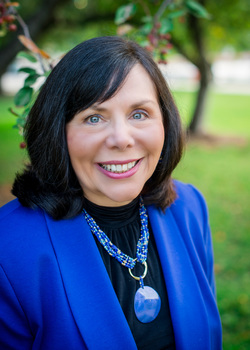 Author Website: CarrieTuransky.com Author Facebook: facebook.com/authorcarrieturansky Author Twitter: twitter.com/carrieturansky Author Pinterest: pinterest.com/carrieturansky/ Author Blog: carrieturansky.com/index.php/blog/ Announcing a brand new story from Crimson Pulse Media.
The Runners of Abra Lost Realms presents Season 1 of The Runners of Abra an episodic story with a single chapter releasing each Saturday beginning January 7th and running through the end of the year. The story: Coming Soon Venture to the islands of Abra and join The Runners. Don't miss a single episode. Announcing two brand new stories coming from Crimson Pulse Media. The PitEdge & Narrow presents The Pit an episodic story with a single chapter releasing each Saturday beginning January 14th with a double episode release) and running through the end of the year. The story: A mysterious world is discovered with a massive, miles-wide pit torn through one continent. The planet is strewn with the remains of a fallen civilization. What happened to the locals, and what were they digging for so desperately? A young intern assigned to the first expedition into the Pit will be among the first to find out... Prepare to follow the adventure into The Pit and don't miss a single episode. Ransom’s RuinLost Realms presents the Dissident Saga coming July 2017
Book 1: Ransom’s Ruin Kelonia is still recovering from a vicious civil war that destroyed most of the country’s infrastructure thirty years ago. When Shiloh’s farm is attacked and destroyed, her parents recognize the attack strategy as one favored by Dissident fighters from the last war. Shiloh must find a secure location to hide while she prepares to take a stand against the enemy who is trying to recruit her. 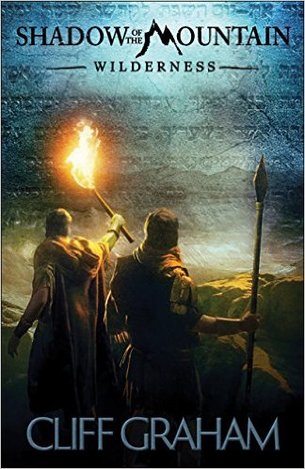 Interview by Brock Eastman Featuring Shadow of the Mountain: Wilderness Action-driven and unique in Christian fiction today, Shadow of the Mountain: Wilderness begins with Moses sending Joshua, Caleb, and ten others to spy on and scout the country of Canaan, where the Lord has promised them a homeland. Asked to report back, ten talk only of the Anakites, a race of fearsome giants in the hills, their walled cities, and terrible human sacrifices to their gods. Despite giants, Joshua and Caleb feel the Lord is on their side and the land will be worth it. But the hearts of the people are fearful and turned against God's words. Their punishment will be forty years without a home, wandering the deserts until that generation dies out. But as the life of Caleb proves, God's promises are real--for men young and old. Brock: What was your inspiration for writing the Shadow of the Mountain series? Cliff: I travel and speak frequently, and I noticed that the older men in the crowd frequently felt left out of what churches are doing. The 85 year-old Caleb makes for a terrific role model for them, and I wanted to bring him to life for the modern reader. Brock: Tell us about the main characters. Who are they? What makes them unique? Cliff: Caleb and Joshua are two characters in the Bible that many people can identify but few know much about. They lurk in the shadow of Moses, who has been featured much more prominently in popular portrayals, sermons, and other avenues. Caleb, especially, is the one who gets overlooked. He doesn’t show up much in the Bible, but when he does, it’s always inspiring. I wanted to explore the bond of brotherhood these two shared in the wars of the Israelite conquest. Brock: In three sentences, what is this book about? Cliff: The wars of the Israelite conquest as told through the eyes of Caleb and Joshua. It is a depiction of what it might have been like to fight on the ancient battlefields alongside these heroes. It is also a meditation on how men can wage great battles even as they age and are thought to be no longer useful. Brock: Do you outline the entire book before starting, or do you write as you go and let the characters take control of the story? Cliff: I outline about three pages worth of material just so I have a road map. I always start with the end of the book; I think of the best possible ending that the book can have, write that first, and then start again from the beginning. I feel like I need to “earn” the ending so I try to work towards it. Brock: How do you believe this story relates to the lives of readers? Cliff: I think it will have an impact on men young and old, and show them that there is more to the Bible than Jesus petting lambs. Brock: How many books are planned for this series? Cliff: Three Brock: Any certain research required for the book, or is it all from your imagination? Cliff: I spend an extensive amount of time researching so I know my parameters and can enlighten the reader with certain historical details they may never before have considered, including on site in Israel at the battlefields, but with a clear note to the reader at the beginning of all of my novels, I make sure to point out that this is my imagination at work and must be treated as fiction. Brock: What do your readers think about your latest series? Cliff: I wasn’t sure how they would react to this series as opposed to the Lion of War series. It has a different tone and concept. The reaction has been extremely gratifying. Many say they are their favorite books of mine. Brock: Can you give us a hint at the next book in the series? Cliff: It will involved the spying mission that Joshua and Caleb go on dispatched by Moses. I always thought it was an exciting episode in the Bible and wished it had more “screen time.” Brock: Do you plot or outline the entire series before you begin writing, or do your books take on lives of their own? Or is there a combination? Cliff: Each book is its own battle. They are forged in great frustration and heartache. Occasionally there is joy. What makes it worthwhile is the feedback from readers. Brock: Is it difficult to be accurate to a Biblical perspective or Biblical facts when writing fantasy fiction? Cliff: It is unrelentingly stressful, because you are always aware that you are dealing with the Word of God. However, once you figure out where the “silent” areas of Scripture are, there is fertile ground for the imagination. You can fill in a lot of gaps with a plausible interpretation. Brock: How much leeway do you gives yourself with facts in a Historical Genre? Cliff: I try not to give actual facts any leeway. However, the context of facts can be interpreted in different ways, as well as the strategic use of facts. You can stay away from certain facts that don’t fit within your story as long as you don’t contradict or violate them. Brock: Where do you like to write? Cliff: Random places. My staircase is one, and it drives my wife crazy. I’m not sure why. I think it’s because if I am too comfortable, my mind wanders. I also don’t enjoy being entirely alone when writing, because it is an inherently lonely activity. Brock: Are you a full-time or part-time author/writer? Cliff: I am a full-time author who does a lot of other things as well. Brock: How long does it usually take you to write a single book? Cliff: If I am really feeling a story and the characters are coming together, I can draft it in 30 or so days. It can be much longer if I am not quite connecting with the story as I originally envisioned it. Brock: Expound on the spiritual themes in the series. Cliff: My prayer is that readers can read some of these stories with a fresh perspective, specifically through the lens of warfare. I think many people believe these characters wandered around with soft-spoken British accents and never got dirty. I want to portray the reality of life on the battlefield. The laughter, the blood, the sweat, the tears, the suffering, the triumph. Brock: What are some of the strongest influences on your writing? Cliff: Hemingway, Cornwell, and L’Amour are my favorite novelists. Each of them brought something different to the craft that I stand in awe of. However, my single favorite historical novel is The Killer Angels by Michael Shaara. The way he brought Gettysburg to life remains unsurpassed in combat literature, in my opinion. Brock: Coke or Pepsi? Cliff: Coke Zero Brock: Soft shell or Hard Shell tacos? Cliff: Soft shell, and it’s not up for debate. Brock: Favorite place to vacation? Cliff: Anywhere with historical battlefields. Brock: Favorite season? Cliff: Winter Brock: Do you have a particular drink or food you consume when you write? Like coco, raspberry tea, animal crackers? Cliff: Tea in the evenings, coffee in the mornings. Brock: Favorite color? Cliff: Navy blue Brock: Do you have a favorite Bible verse? Cliff: Psalm 140:7 “Oh Lord, the God of my salvation, you have covered me in the day of battle.” Brock: In what areas have you failed as you built a career as an author? Cliff: I frequently bite off much more than I can handle. I have done a poor job of delegating to folks who help me manage our projects, since I usually am focused on a larger vision and get impatient with details. I frequently communicate poorly with supporters. I have learned many valuable lessons from many mistakes. Brock: In what areas have you been strong as you built a career as an author? Cliff: I am tenacious in pursuit of a goal. I know how to keep my eye on the goal and not be crushed by setbacks. 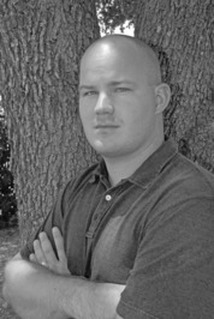 Author Website: cliffgraham.com Author Facebook: facebook.com/cliffgrahamauthor Author Twitter: twitter.com/cliffgraham 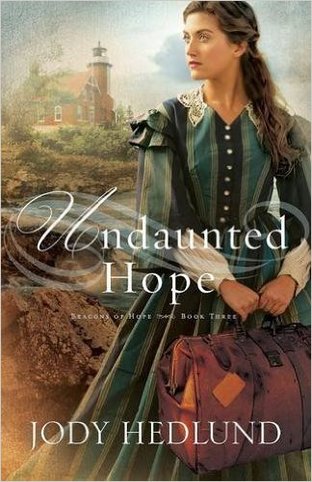 Interview by Brock Eastman Featuring Undaunted Hope Running from the mistakes of her past, Tessa Taylor heads to the uppermost reaches of Michigan, planning to serve as the new teacher to the children of miners. She quickly learns the town had requested a male teacher, but Percival Updegraff, superintendent and chief mine clerk, says she can stay through winter since it's too late to replace her. Tessa can't help but thank him and say she is in his debt. Determined to make herself irreplaceable once spring thaw arrives, Tessa throws herself into her work, and soon two students have decided Miss Taylor is the right match for their grieving father. At the same time, charming assistant lightkeeper Alex Bjorklund makes his interest known, surprising Tessa, who has never had men fight for her hand before. But not all is well as she feels that someone is tracking her every move, and she may not be able to escape the trap that has been laid for her. “Hedlund again provides a satisfying, heartwarming story of adventure, adversity and love in the Michigan wilderness. Her characters leap from the pages with verve and wit, and readers can't help but cheer for them.” --RT Book Reviews Brock: How did you come up with the idea for Undaunted Hope? Jody: For this third book in my Michigan lighthouse series, I wanted to pick a location that was different than the other books. The first two books, Love Unexpected and Hearts Made Whole, are set in the "Mitten" of Michigan. So to add variety to the series, I decided to place Undaunted Hope in the Upper Peninsula on Lake Superior. In doing my research of Michigan lighthouses, I learned that there are lighthouses dotted all over the coast of Lake Superior since it was such a treacherous lake to traverse and an important place for steamers due to the rich natural resources that were available. As I studied the various lighthouses, I finally landed upon Eagle Harbor Lighthouse in the Keweenau Peninsula because not only was the area rich in resources, but it was rich in history and the makings of a really great story! Brock: Tell us about the main characters. Who are they? What makes them unique? Jody: Tessa Taylor is the heroine of Undaunted Hope. She's the sister of the light keeper in Hearts Made Whole, the second book in the series. Tessa, unlike her sister, doesn't like lighthouses. Actually, she doesn't want to have anything to do with lighthouses. So in keeping with Tessa's desires, she arrives in the Eagle Harbor, Michigan to become a school teacher. As I researched the area, I came across the diary of a real school teacher, Henry Hobart, who lived and taught in Clifton which was just a few miles down the road from Eagle Harbor. He wrote a detailed account of his life as a school teacher to the mining children. I loved reading his diary and learning about all he experienced, especially those unique things that came with being in such a remote area of Michigan and living among the mining community. I used many of Hobart's experiences in Undaunted Hope. For example, he boarded with a Cornish family, the Rawlings, and Mr. Rawlings was a prominent mine engineer and mechanic. So I had Tessa board with this particular family. Hobart faced many hardships like bedbugs, lice, scarlet fever, the harsh winter, and much more. So again, I had Tessa experience many of those same things. Brock: In three words, what is this book about? Jody: Face your fears. Brock: What have you enjoyed most in writing this lighthouse series? Jody: Over the past couple of years of writing this series, I've thoroughly enjoyed getting to visit numerous lighthouses throughout the state. Not only have I attempted to visit the lighthouses that are used as settings for the books, but I've also been inspired to visit many others. Every time I do, I learn a little bit more about how lighthouses were operated and have come to realize that they're all so unique. During the past summer of 2015 I toured several lighthouses including: Tawas Point Lighthouse, St. Joseph Lighthouses, and Mackinac City Lighthouse. Each time I climb a tower, reach the top, and gaze out at the spectacular view, I'm always amazed by the beauty. I never tire of the experience and can completely understand the fascination so many people have with lighthouses. I think I caught the "lighthouse bug" and will forever be visiting them! Brock: Do you outline the entire book before starting, or do you write as you go and let the characters take control of the story? Jody: I start out with a brainstormed list of plot ideas. I do my best to think of as many twists and turns as I can before I start writing the first draft. And I usually have a pretty good idea of how I want the plot to wrap up. But inevitably the story develops even more as I get into the meat of writing. I think that’s what makes writing so fun and what gives me such a rush—to see what new aspects unfold and where the story actually leads as I get to know my characters more intimately. Brock: How do you believe this story relates to the lives of readers? Jody: I pray that this story will encourage readers with renewed hope. Just like Tessa, I hope that readers will find the strength to face their fears. We all have things that frighten us, and many times we find it easier to run away from those things that scare us. Sometimes, however, God calls us to walk directly into that thing we fear most. He wants us to know that during those times, he's there walking right beside us and that he'll help us come out on the other side stronger as a result. Brock: When did you realize you wanted to become a writer? Jody: Like many writers, I’ve been writing since my childhood days. I always loved telling stories. When I was in junior high, I entered my first writing contest for a Biblical fiction story. And when I won, I realized God had indeed gifted me. I think that was when I became more serious about wanting to be a writer when I grew up. The passion followed me into adulthood. And after many twists and turns along the path, I’ve finally been able to channel that passion into a full time writing career. Brock: What are some of the strongest influences on your writing? Jody: My mom was the most influential person in my writing career. When I was young, she helped facilitate my love of writing by reading aloud to me, giving me good books to read, and providing the kind of environment that fostered my creativity (in fact we didn’t have a TV for a number of years). She always believed in me, encouraged me to pursue my dreams, and rode alongside me cheering me on. Brock: What is your favorite social media hangout? Jody: Currently my favorite social media hangout is Instagram. I'm a very visual person and love pictures. I use Instagram to post personal pictures of my kids, family life, food, and cats. A second favorite is Pinterest, also because of all the pictures! I have a variety of boards there for my stories, writing tips, reading humor, etc. And I also use it for secret boards for potential characters and settings of future books. Brock: Coke or Pepsi? Jody: Diet Pepsi Brock: Soft shell or Hard Shell tacos? Jody: Soft shell loaded with all the toppings Brock: Favorite place to vacation? Jody: Dream vacation: castles throughout Europe Brock: Favorite season? Jody: All of them in their own time Brock: Do you have a particular drink or food you consume when you write? Like coco, raspberry tea, animal crackers? Jody: Coffee. Coffee. And more coffee. :-) Brock: Do you have a favorite Bible verse? Jody: One of the many verses I treasure is "I can do everything through Christ who gives me strength." Phil. 4:13 That verse has held me in good stead through many trials. Brock: What do kinds of activities do you do to keep yourself energized and refreshed? Jody: One of the most important activities that I've taken up over the past couple of years is running. Not only is it a great way to stay healthy (yes, I've reduced my blood pressure and cholesterol since I started running), but I also use my running time to pray, praise, and listen to books. Of course, I LOVE reading! I always have a couple of books going at once. And most nights I read in bed before going to sleep. Brock: As a Christian writer, how do you keep yourself spiritually revived so that you have fresh messages to share in your stories? Jody: At the same time I have a fiction book that I'm reading, I usually also have a non-fiction spiritual growth book going. For example, I recently read the book Fervent by Priscilla Shirer. It was an excellent book to jump-start my prayer life. I also really love the preaching of the new pastor at our church. I try to take really good notes every Sunday so that I can mull over the messages at home. And I also enjoy a women's Bible study where I learn and grow a lot. Brock: How do you find time to write so many books?! Are you a really fast writer or super woman? Jody: Haha! I'm definitely not super woman! And I have no super powers! But I am very organized which helps me budget my limited time wisely. I also am very goal-oriented, which allows me to plan out my writing schedule into bite-sized, manageable chunks. And on a daily basis, I give myself word-count goals which pushes me to write my books in a specific time frame. Am I a fast writer? Compared to a lot of other writers, I'm probably slow. But over the years of writing, I have honed my writing muscles so that the words and ideas do flow easier than when I first started writing. 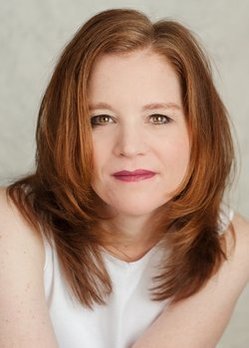 Brock: Do you have any parting words? Jody: I love hearing from readers! Make sure you stop by one of these places and say hello! I hang out on Facebook here: Author Jody Hedlund I also love to chat on Twitter: @JodyHedlund My home base is at my website: jodyhedlund.com Find me on Instagram: instagram.com/jodyhedlund/ Come pin with me on Pinterest: pinterest.com/jodyhedlund/pins/ 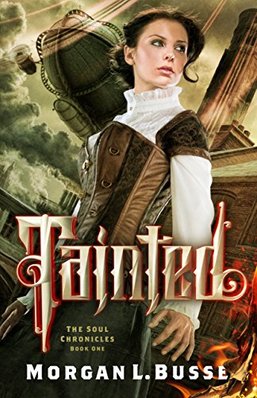 Featuring guest author, Morgan Busse What is steampunk? I’m asked this question a lot, especially with the release of Tainted, the first book in my own steampunk series. In a nutshell, the genre steampunk is a fusion of our history (usually Victorian or western) and science fiction/fantasy. For example:
What I love about steampunk is the possibilities. Steampunk isn’t just science fiction or Victorian. It can have magic if you want. Or you can borrow from the time period of your choice without being confined to it or to the technology that existed. So if you want to invent some kind of steam powered cell phone, go for it! The thing that sets steampunk apart from other genres (both visually and in story) is the feel. Steampunk has a feel of fantastical inventions, adventure, and science/discovery. Usually cogs, clocks, corsets, goggles, airships, and alchemy are associated with steampunk stories. But you don’t have to have any of those if you don’t want to. Have fun and create your own technology, weapons, and culture. My own steampunk series borrows heavily from the Victorian era and science. I also had fun inventing things such as mechanical animals, an airship that runs on solar panels, a sniper rifle hidden within a walking cane, and a prosthetic arm that functions as an electric cannon. But like any other genre, the story cannot stand on just the genre underpinnings. What connects the reader to the story is the story itself, with characters the reader can relate to. So while you’re having fun inventing your steampunk world, remember to tell a story, one that will grip your readers by the heart and mind. How about you? Have you ever heard of steampunk before? What do you like about this sub-genre? *** What Happens When Your Soul Dies? Kat Bloodmayne is one of the first women chosen to attend the Tower Academy of Sciences. But she carries a secret: she can twist the natural laws of life. She has no idea where this ability came from, only that every time she loses control and unleashes this power, it kills a part of her soul. If she doesn’t find a cure soon, her soul will die and she will become something else entirely. After a devastating personal loss, Stephen Grey leaves the World City Police Force to become a bounty hunter. He believes in justice and will stop at nothing to ensure criminals are caught and locked up. However, when Kat Bloodmayne shows up in his office seeking his help, his world is turned upside down. Together they search World City and beyond for a doctor who can cure Kat. But what they discover on the way goes beyond science and into the dark sphere of magic. Book one of The Soul Chronicles series. Order your copy of Tainted here: www.enclavepublishing.com 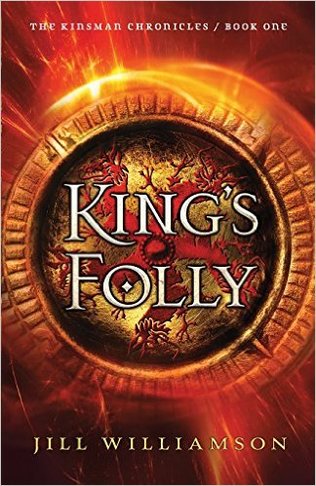 Interview by Brock Eastman Featuring King's Folly Their Battle for the Throne Has Just Begun. But Will It Matter if the World They Rule Collapses Into the Sea? The gods are angry. Volcanic eruptions, sinkholes, ground shakers--everything points to their unhappiness. At least that is what the king of Armania believes. His son Prince Wilek thinks his father's superstitions are nonsense, though he remains the ever dutiful First Arm of Armania. When a messenger arrives and claims that the town of Farway has been swallowed by the earth, the king sends Wilek to investigate. But what Wilek discovers is more cataclysmic than one lost city. Even as the ground shifts beneath his feet, Wilek sets out on a desperate journey to save his people and his world. But can he do it before the entire land crumbles? Brock: How did you come up with the idea for the Kinsman Chronicles? Jill: I’d been thinking about writing a prequel to the Blood of Kings trilogy. In that series, I mention that hundreds of years ago Arman (who represents God) bestowed the magic of bloodvoicing upon those with royal blood when the kings first came to the land of Er’Rets. That got me thinking where these ancient kings came from and why they left their homeland. I also like the concept of genre mashing, and so I thought it might be fun to try and write a fantasy apocalypse. And when I sat down to think the story through, I knew I would need to take my Biblical storyworld parallels back before Jesus. So this storyworld is akin to the era of Judah and Israel, where many kings did evil in the eyes of the Lord. My young princes are going to do all they can to turn their people and their wicked ways around. Brock: Tell us about the main characters. Jill: Wilek is the eldest son of a selfish and evil king. He hates that his father practices human sacrifice. He longs to help his people, but his father has yet to decide which of his three sons he will choose as his Heir. Wilek’s title is The Dutiful, and he always tries to do what is right, though he has never really had any way of measuring morality besides his own conscience, so he struggles to stand against the norms of society when he feels something is wrong. Trevn is Wilek’s little brother. His title is The Curious and he strives to enjoy life, explore, go on adventures, and draw maps of all the places he has been. He grew up in a neighboring kingdom, but his father has called him home to study to be a priest. Though Trevn thrives on learning, his heart is not in the priesthood. He would much rather live up to his reputation as the Firebrand of Everton Castle, making his servants chase him over rooftops and ride on top of carriages. Brock: Describe your book in two sentences. Jill: When their homeland is destroyed, the rulers of the Five Realms fight to save their people from extinction. Which realm will survive? Brock: Do you outline the entire book before starting, or do you write as you go and let the characters take control of the story? Jill: I create a rough outline, then let the characters take control of each chapter. Brock: How do you believe this story relates to the lives of readers? Jill: There are several ways King’s Folly can relate to readers. The first that comes to mind is self-sacrifice, which is a foreign concept to people today. With nearly every desire available at the swipe of our iPhones, we have become a selfish, impatient, and somewhat lazy society. But a life of mindless routine can quickly become empty. Such is the theme found throughout the Kinsman Chronicles. These people have been spoiled by a lush living, and no one has had it easier than the princes. But when everything is stripped away, it is my princes who must rise up and set an example for their people and show them “that suffering produces perseverance; perseverance, character; and character, hope.” (Romans 5:3-4) Brock: How many books are planned for this series? Jill: There are nine parts to the Kinsman Chronicles, which will be released in ebook format only. There will be three paperback editions that include three ebook parts each. Those editions are called: King’s Folly, King’s Blood, and King’s War. The first three ebooks included in King’s Folly are Darkness Reigns, The Heir War, and The End of All Things. Brock: Any certain research required for the book, or is it all from your imagination? Jill: I had to learn a lot about deserts for King’s Folly. And for King’s Blood, I’m having to learn a bunch about ships and navigation during the age of sail. Brock: What is your “how I got published” story? Jill: I wasn’t trying to get published when I submitted my first chapter of my fantasy novel to Jeff Gerke at the 2008 Oregon Christian Writers’ Summer Coaching Conference. Marcher Lord Press’ submission guidelines were clear: no young adult novels. I’d met Jeff at the 2007 Mount Hermon Christian Writer’s conference and used his editorial services on a different novel. When I saw he was at OCW, I submitted my manuscript to him hoping to glean wisdom. I was surprised when he wanted to meet with me. I was even more surprised when he wanted to read the full. “Why does it have to be YA?” he asked. As soon as I got home, I looked over the book and sent it off. A few months later I got an email from Jeff that said: “Do you happen to be by a phone right now so that I can call you?” And that was the beginning of a new adventure. Brock: When did you realize you wanted to become a writer? Jill: I had recently quit working in the fashion industry—which was the career I’d gone to college for—and was trying to figure out what I was going to be when I “grew up.” Since I had a pretty interesting childhood/life story growing up in Alaska, I thought that maybe I could be a motivational speaker for teens. I discovered that sometimes, people hire speakers based on articles written by the speaker. So I looked into writing articles. I was shocked at how hard that was! As I was learning to write and submit articles for publication, a new Harry Potter book came out (book four, I believe), and a new barrage of debates within the church community flared up as to whether or not Christians should read the books. The debate inspired me to try and write my own teen fantasy novel that all Christians would love. Yep, I was TOTALLY naïve and have since learned that no one likes every book— especially Christians. But that’s how I got started writing fiction. And once I’d created Spencer, I was hooked on writing fiction. I left article writing in the dust and never looked back. Brock: What are some of the strongest influences on your writing? Jill: I grew up in Alaska with no electricity or running water. I played outside a lot and I read a lot of books. So my imagination got a great workout early on in my life. On my ninth birthday, my parents rented a TV and VCR and all three (original) Star Wars movies. It was so awesome and opened up my imagination to the world of speculative fiction. Frank Peretti’s This Present Darkness really opened my imagination to the possibility of writing something with Christian themes. I had read the Narnia books, but Peretti’s book was so different. He turned my faith into a spec fiction novel and it felt so real! I loved that. Brock: What is the one author, living or dead, who you would co-write a book with and why? Jill: I’m tempted to say C. S. Lewis or J.R.R. Tolkien, since they are in my genre and I would LOVE to write a book with them, but I’m going to choose Jane Austen instead. I have always been interested in writing a Regency fantasy novel. I love Jane Austen’s characters so much. I cry every time Elinor discovers that Mr. Ferrars is not married after all. I would ask her for advice on how to make readers cry and add that to some fun storyworld. Brock: Soft shell or Hard Shell tacos? Jill: Hard. Brock: Favorite season? Jill: Winter! I love snow and Christmas and hot chocolate. Brock: What’s your favorite holiday memory? Jill: The year my mom gave each of us four kids a black trash bag filled with baby stuff, then laughed/cried and told us she was pregnant. Brock: Do you have a particular drink or food you consume when you write? Like coco, raspberry tea, animal crackers? Jill: Hot chocolate, with peppermint in it. Brock: Favorite pasta dish? Jill: Chicken Fettuccini Alfredo with broccoli. Brock: Do you listen to music while you write? Jill: No! If I do, I will sing along and write nothing. Brock: How do you give back to the writing world? Jill: I love teaching at writer’s conferences and do so whenever possible. I also blog weekly on www.GoTeenWriters.com where I and two other authors encourage young writers. I am currently writing a book with the teens and taking them through my process. It’s lots of fun. 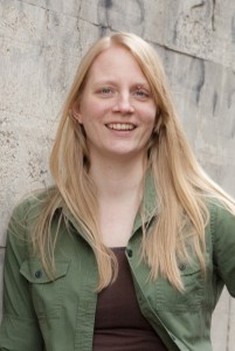 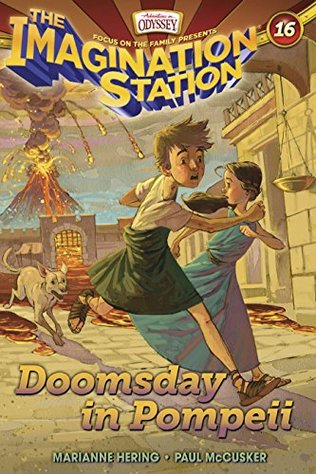 Interview by Brock Eastman Featuring Doomsday in Pompeii Life in AD 79 is heating up! “The volcano is going to blow up,” Patrick said. “Everyone left in the city will die!” After lightning strikes Whit’s End, Patrick’s trip in the Imagination Station goes haywire. At the workshop, Eugene Meltsner and Beth work to fix the machine. They discover that Patrick has landed in the wrong place at definitely the wrong time. He has only hours to get away before Mount Vesuvius erupts. Meanwhile, Patrick befriends a preacher named Valen. Together they try to help the local people escape certain death. But a troublesome teen wants to keep Patrick in the city at any cost. A “new” invention launches Beth into Pompeii—just as the volcano explodes. Read on to find out if she and Patrick avert disaster! “The books are really awesome. I hope they write a thousand more! I’m totally going to read these to my son when I’m a dad. I want to read these books a thousand million infinity times.” -Hamish Z. age 6 Brock: How did you come up with the idea for this series? Marianne: My son, Justin, was a struggling reader when he was younger. He also preferred reading for information. I wanted to create easy-to-read history books with lots of adventure in order to capture his attention. Because I worked at Focus on the Family at the time, it seemed natural to put the books into the Odyssey world. The Imagination Station was the perfect way to do that. Coauthor Paul McCusker was also in favor is reaching a younger audience with the Imagination Station books. Brock: Tell us about the main characters? Who are they, what makes them unique. Marianne: The main characters are Patrick and Beth, cousins who live in Odyssey. So far we’ve never given them last names. They are 9ish. We try not to say their ages too often because we want readers to imagine that the cousins are about their age. Beth and Patrick are courageous but not foolhardy. They are basically good, honest kids. Beth pays more attention at school, but if Patrick is interested in something, he knows a lot about that subject. Their names were taken from the middles names of Paul McCusker’s children, which was fine because the names have short vowels and are easy to sound out. If his kids’ middle names had be Jacques or Kjerstin, we would probably have gone a different route. Brock: Give us one fact about each main character that no one else knows. Marianne: Patrick rarely changes his socks. Beth really prefers to eat Pop Tarts, but to be kind to Mr. Whittaker, she orders food at the soda shop. Brock: In three words, what is this book about? Marianne: Mt. Vesuvius goes boom! Brock: Do you outline the entire book before starting, or do you write as you go and let the characters take control of the story? Marianne: We outline. This outline was about 7,000 words. The book is 12,000 words. Brock: How do you believe this story relates to the lives of readers? Marianne: These books appeal to kids on a general level. The experiences Patrick and Beth have can in no way be replicated. Our readers may make it to Pompeii, but hopefully it won’t be while the volcano is active. Readers relate to Patrick and Beth because the cousins often must persevere under stress and also get adults to listen to them. Patrick and Beth overcome their trials, giving readers hope and confidence that they too can be successful. Brock: What is your favorite genre to write for? Marianne: Anything where I can develop a strong literary voice. Brock: What is the biblical background or basis for the series? Marianne: Some books have more biblical content—like book 5 by a really awesome coauthor. It’s called Showdown with the Shepherd. In that story, Patrick and Beth witness the confrontation between David and Goliath. In Doomsday in Pompeii, we created a church and a very brave preacher named Valen. He’s a great role model because he is a loving person willing to die for his friends. We also taught kids to avoid greed. The character Junius almost dies because he wants to accumulate treasure. Brock: How many books are planned for this series? Marianne: At least through 18. Brock: Any certain research required for the book, or is it all from your imagination? Marianne: I do extensive research before and during the writing process. Brock: How do you strike the right balance in your book? Marianne: I’m not sure we always strike the best balance, but these books are easier to write than most because I get to choose the place in history that I want to send them. We err on the side of action if we have to chose. We’re short on character development because the historical figures are more important than the main characters. Patrick and Beth at some times are mere narrators. Brock: Why did you choose to focus on a male/female protagonist? Our protagonists are historical, for the most part. Sometimes nature is our protagonist, as I the case of Mt. Vesuvius. Brock: Are you working on the next book in the series? Marianne: Yes. Brock: Can you give us a hint at the next book in the series? Marianne: Ecuador, 1950s. We’d like to visit the Aucas, the famous tribe who became Christians after the tragic deaths of five missionaries. Brock: Do you plot or outline the entire series before you begin writing, or do your books take on lives of their own? Or is there a combination? Marianne: We plot out the books in 3-book story arcs. Brock: If your book changed as you wrote it, how is it different than how you originally planned? Marianne: Usually my coauthor/creative director adds more action. Brock: Were any scenes or characters cut from the book? Can you give an example? Marianne: At one point in Doomsday in Pompeii Beth was going to make a gas mask out of charcoal and some bandanas. It was going to help filter out the poisonous gases from the volcano. But we had to cut that for space. Brock: How much leeway do you gives yourself with facts in a Historical Genre? Marianne: I try to give myself no leeway, but you always have to make compromises. For example, Patrick and Beth would have died from the fumes of the volcano long before the lava reached the city. We thought it would be more exciting to have them run from lava. I love the cover, too. So we fudged those facts and have Patrick and Beth live a lot longer than they should have. Brock: How do you hope parents will use this book with their kids? Marianne: Parents would benefit from reading the books with their kids and asking questions about why characters did certain things. Also, after reading this book, it would be fun to read more nonfiction books about volcano eruptions. Brock: What do you hope kids take away from this book or series? Marianne: That there are Christians who influence history and that learning can be fun. Brock: Where do you like to write? Marianne: On a computer. That quill and ink thing slows you down. Not good with charcoal on cave walls either. No matter how large the cave is, there’s never enough wall space. Brock: Are you a full-time or part-time author/writer? Marianne: Part time. I edit, too. Brock: How long does it usually take you to write a single book? Marianne: An IS book takes 6 weeks, working 4 to 5 hours a day. Brock: Expound on the spiritual themes in the book/series. Marianne: Our theme usually centers on God and how great He is and how He works through history. In this book, we focus more on how a mature Christian should act in face of a disaster. Brock: When did you realize you wanted to become a writer? Marianne: About a year ago when I was editing a poorly written book. I thought, “I can do better than this.” And so now I prefer to write to save the sanity of other editors. Brock: What are some of the strongest influences on your writing? Marianne: Good reading. I love to read books with well-crafted sentences. I learn by absorbing the rhythm and sound of words and phrases. The more good writing that goes into my soul, the more easy it is to produce it. Brock: What’s your view on e-books and the new publishing revolution? Marianne: Revolution? That’s a bit dramatic. I’m pro book. Read them whenever and however you can. Brock: What was your favorite book as a teen or child? Marianne: When I was young, I read every book about horse and dogs I could. I loved Sounder, the Black Stallion, and even Little Black, a Pony. Brock: What is the one author, living or dead, who you would co-write a book with and why? Marianne: I like to think all of my books, to some extent, are influenced by the Holy Spirit and the Word of God. I actually dislike co-writing with humans, but sometimes you gotta do what you gotta do. Brock: Coke or Pepsi? Coke. Brock: Soft shell or hard shell tacos? Marianne: Soft for chicken. Hard for beef. Brock: Favorite place to vacation? Marianne: Vacation? What’s a vacation? Brock: Favorite season? Marianne: Summer Brock: Do you have a particular drink or food you consume when you write? Like coco, raspberry tea, animal crackers? Marianne: Coffee with coconut milk. Brock: Favorite color? Marianne: Red Brock: Do you have a favorite Bible verse? The heart is deceitfully wicked above all things. Who can know it? Jeremiah 17:9 That’s a good verse for writing about villains. I used to be too nice and didn’t my villians evil. Now I realize that God can handle them. I also remember this so I don’t ever think I’ve arrived at some spiritual place just because I’ve been published. Often I don’t feel as if my books are all that deep, so I just focus on what God does, and it all works out. Brock: Favorite pasta dish? Marianne: Ice cream. Brock: Do you listen to music while you write? If so what are some examples? Marianne: I need quite. I don’t understand people who can work to music. That would drive me nuts. Brock: What about writing keeps you going? Marianne: It’s something I never tired of. If I get an idea or a new interest, I immediately think about how to parley that into a book. 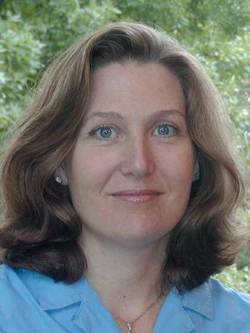 Author Website: none yet Author Facebook: Marianne Hering, but I rarely post Author Twitter: none Author Pinterest: none 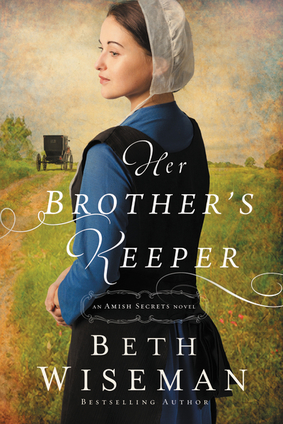 Interview by Brock Eastman Featuring Her Brother's Keeper Charlotte came to Amish country to find answers. What she never expected to find was peace. Charlotte Dolinsky is not above playing dress-up and telling a few lies to find out what happened to her only brother. In fact, that is exactly what she’s come to Lancaster County to do. Now, calling herself Mary and slipping on a kapp, Charlotte will lie her way into the confidence of anyone who knows why Ethan had to die. Unless she gets found out first. But when Charlotte befriends a quiet Amish man named Isaac Miller, she begins to rethink her motives. And with a little help from a friend back home, Charlotte might find out that love comes packaged in ways she couldn’t have foreseen. Isaac’s been caring for his cancer-stricken father and sympathizing with his frustrated mother for three difficult years. And that means he hasn’t been dating. He believes Hannah King is the woman for him, but Hannah is still grieving the loss of her fiancé, and Isaac has all he can handle on the farm. When Hannah’s family plays host to a woman named Mary, their new cousin shakes things up for all of them. As Charlotte digs deeper into the mystery of Ethan’s death, she finds more than she’d bargained for in the community he once called home. But will she ever learn the truth? And what will the community—and her new family—do if they learn the truth about her? “Wiseman’s new launch is edgier, taking on the tough issues of mental illness and suicide. Amish fiction fans seeking something a bit more thought provoking and challenging than the usual fare will find this series a solid choice.” -LIBRARY JOURNAL Brock: What was your inspiration for writing this book or series? Beth: I was inspired to write Her Brother’s Keeper in an effort to offer readers something a bit edgier, but I also wanted to provide the escape Amish fans expect and enjoy. Brock: Tell us about the main characters. Who are they? What makes them unique? Beth: Charlotte and her brother--Ethan—grew up mostly in foster care, and Charlotte felt like they were survivors, no matter the situation. But when Ethan commits suicide while living in an Amish community, Charlotte can’t seem to get any answers from the Plain People. She decides to pretend she is Amish in an effort to find out what happened to her only brother. Charlotte’s a bit broken, doesn’t have much faith, and her hope slipped away a long time ago. She goes to Amish Country for answers, but what she finds is a family. But holding onto these new relationships is challenging in light of all the lies she’s told. Hannah is grieving the loss of her fiancé and also dealing with the emotions that often go along with suicide of a loved one—hurt, anger, grief, and loneliness. She isn’t thrilled that her Amish cousin (Charlotte, posing as Mary) is coming for a visit. And Hannah suspects early on that Cousin Mary isn’t being honest with her family. And Hannah is also too preoccupied to realize that true love might have been right under her nose for a very long time. Isaac has loved Hannah for years, but he’s been busy running his family farm and helping to take care of his sick father, leaving little time for romance. But when Hannah’s Cousin Mary comes to town, things start to change for everyone, and Isaac’s new friend nudges him to follow his heart. Brock: Give us one fact about each main character that no one else knows. Beth: Charlotte and Ethan used to hide their treasures in empty mothball boxes because their mother couldn’t stand the smell of mothballs. Isaac has lost respect for his father because his father views himself as less of man because he has lost part of his leg from cancer. Hannah chooses to believe what she’s told about a photo that was found at Ethan’s house, even though she knows in her heart that the picture means more than she’s lead to believe. Brock: In three sentences, what is this book about? Beth: Her Brother’s Keeper is about finding love in the most unexpected places. It’s about how those left behind are affected by suicide. And it’s about the love of family and the extremes people go to for peace. Brock: Do you outline the entire book before starting, or do you write as you go and let the characters take control of the story? Beth: When I start to write a book, I have a beginning, but never an end. I figure if I don’t know what’s going to happen, then the reader won’t either, keeping us both surprised. The best part about writing a novel is the characters you meet along the way, the voices that demand to be heard, even if you have no idea what their purpose is in the story. I tried to outline one time, and my editor literally said, “Don’t ever do that again.” I know it works for some people, but not for me. Brock: How do you believe this story relates to the lives of readers? Beth: I think that most people have known someone who has been at risk for suicide, mentally ill, or depressed. And I wanted to bring awareness to this, but to also offer balance and entertainment. I sprinkled humor throughout so that the serious subject matter didn’t drain or bog down the reader. Brock: What is your favorite genre to write for? Beth: I have two genres that I enjoy writing for: Amish and Women’s Fiction. And even though all of my stories have an element of romance included, there are always multiple subplots going on. I like to write about relationships, but not necessarily always romance. I like to explore relationships between mothers and daughters, married couples, friends, and siblings. Sometimes, it’s the established relationships that provide the most insight into what makes us tick. I also like to present multiple points of view related to the same event. For example, the reader knows right away that Charlotte’s brother committed suicide, but I wanted to offer various reactions and opinions so that readers would close the last page and feel the need and desire to discuss the storyline. Brock: How many books are planned for this series? Beth: So far, there are three books planned for the Amish Secrets series. But there were also three books planned for my Daughters of the Promise series, and there ended up being six books. I think readers determine the length of a series. If they want more, authors try to accommodate. Brock: Are you working on the next book in the series? Beth: I’m working on book #2 in the series—not yet titled. This series is unique due to the fact that Charlotte shows up in each story, and she is English (non-Amish). I like to create a community, revisit the same characters, but always offer new players to focus on with each new book within a series. Brock: Where do you like to write? Beth: If I’m at home, I shuffle between my recliner in the living room, my recliner in my office, or my bed—if I need to really spread out research material, notes, etc. I also love to write at the beach on a nice day, listening to the waves. A friend has a great condo that faces the ocean, and I’ve done some of my best writing there. Brock: Are you a full-time or part-time author/writer? Beth: I’m a full-time author with lots of deadlines, but I can’t complain. There’s something to be said for staying in your jammies all day if the moods strikes. ☺ Brock: How long does it usually take you to write a single book? Beth: It usually takes me about two months to write a full-length book, and if other deadlines allow more time, I love having three months. I write a lot of novellas for HarperCollins Christian also, so sometimes I have three or four projects overlapping. Brock: When did you realize you wanted to become a writer? Beth: I knew I wanted to become a writer when I was very young, maybe six or seven. I would write stories to my grandparents--On a cold, dark night kind of stuff. I got sidetracked many times over the past few decades, but I always went back to writing in some capacity. I was a journalist and a columnist before I ended up staying home to write books full-time. Brock: What’s your view on e-books and the new publishing revolution? Beth: There is so much to be said about eBooks and the publishing opportunities that they represent. It’s a new world for authors, and I think we are still in the experimental stages. What works for some, won’t work for others…and vice versa. Brock: What are your hopes for your future as an author? Beth: I hope and pray that God will continue to bless me with stories to tell. I was gifted the opportunity to write full-time and publish late in life, and once the door opened for me, it was like a floodgate. I’ve never had writer’s block, and I’m pretty sure that when it’s my time to leave this earth, I’ll leave with stories I still wanted to tell. And I want each story to be better than the last. Brock: In what ways does your faith impact how you approach writing? Beth: There is a glorious moment for Christian fiction writers when you are no longer the author, only the messenger, when God takes the helm and you just ride along. I couldn’t tell you how many times I’ve re-read something I wrote, then my jaw dropped. I wrote that? But it wasn’t actually me. And the biggest impact on my faith—and the biggest surprise—has been that even though I’ve strived to minister to others through entertaining fiction stories, I’ve been ministering to myself all along. Brock: Coke or Pepsi? Beth: I prefer Diet Coke over all other sodas. Brock: Soft shell or hard shell tacos? Beth: This is too difficult to choose, lol. I like both! Brock: Favorite season? Beth: In Texas, we have all four seasons. Spring and Fall are amazing. It would be a toss up between those two seasons as to which one I like the most. Summers are scorching hot (triple digits), and we don’t do cold well, lol. Fireplaces get lit when it hits about 50 degrees. Brock: Do you listen to music while you write? If so, what are some examples? Beth: I know that a lot of authors listen to music while they write. No, no, no. Not me. I need complete silence. And I don’t write in coffee shops or restaurants. I guess I’m easily distracted, lol. Brock: You mention that your writing career didn’t take off until late in life. Why do you think that is? Beth: I wasn’t ready. When I first starting submitting manuscripts for consideration, I think I was a pretty good storyteller, but I hadn’t studied the craft enough. Once I made a true effort to learn the craft of writing a novel, things began to change. But, even more important, I finally realized that everything I went through during my life presented opportunities to educate and heal—both myself and others. How many times, when something bad is happening to us, do we ask, “Why God? Why is this happening to me?” I know now that if I hadn’t been through some of that bad stuff, I wouldn’t be qualified to write about it in a way that readers could relate to. It’s all about timing, and we’re on God’s clock. ☺ Brock: What is one thing you tend to write about a lot, something that always works its way into your stories? Beth: I write a lot about fear, worry, and regrets—the way these things bog us down. I write about carrying the burdens of the past, struggling to let go…to let God. I’m a worrier, and even though I know it’s a sin, it’s something I constantly have to work on. I also write about forgiveness, of self and others. I want readers to focus on the here and now. Everything that has happened up to this moment has been for a reason. There shouldn’t be fear, worry, or regrets, and we should always be able to forgive ourselves and others, the way God does. 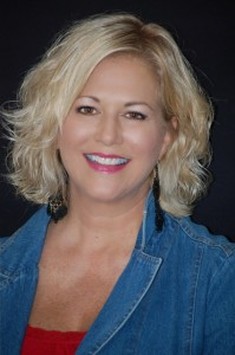 Author Website: BethWiseman.com Author Facebook: Fans of Beth Wiseman Author Twitter: Beth Wiseman Author Pinterest Author Ello |
Follow meArchives
May 2024
Categories
All
|
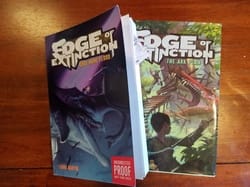
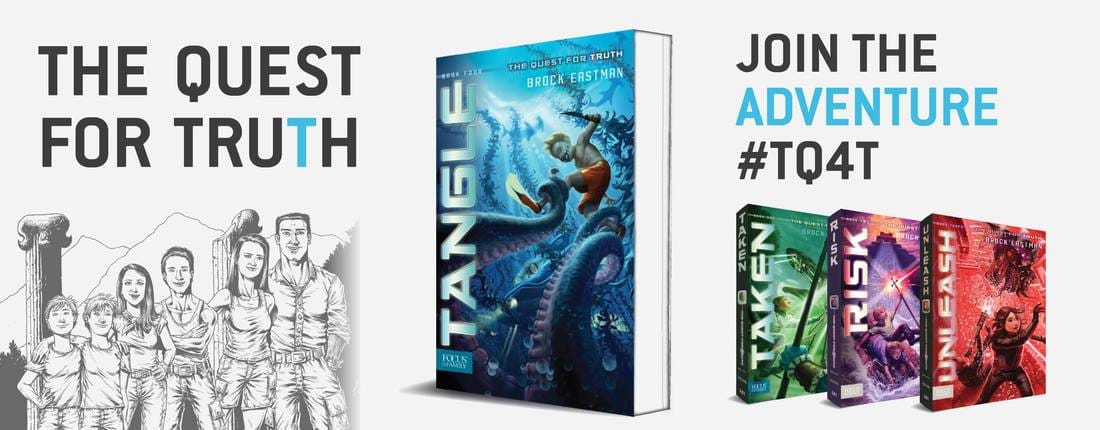
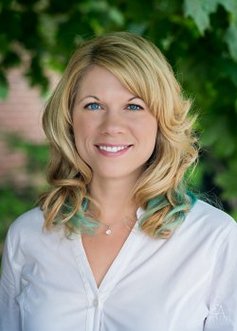
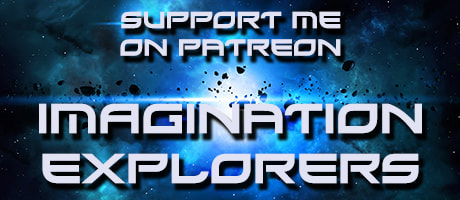
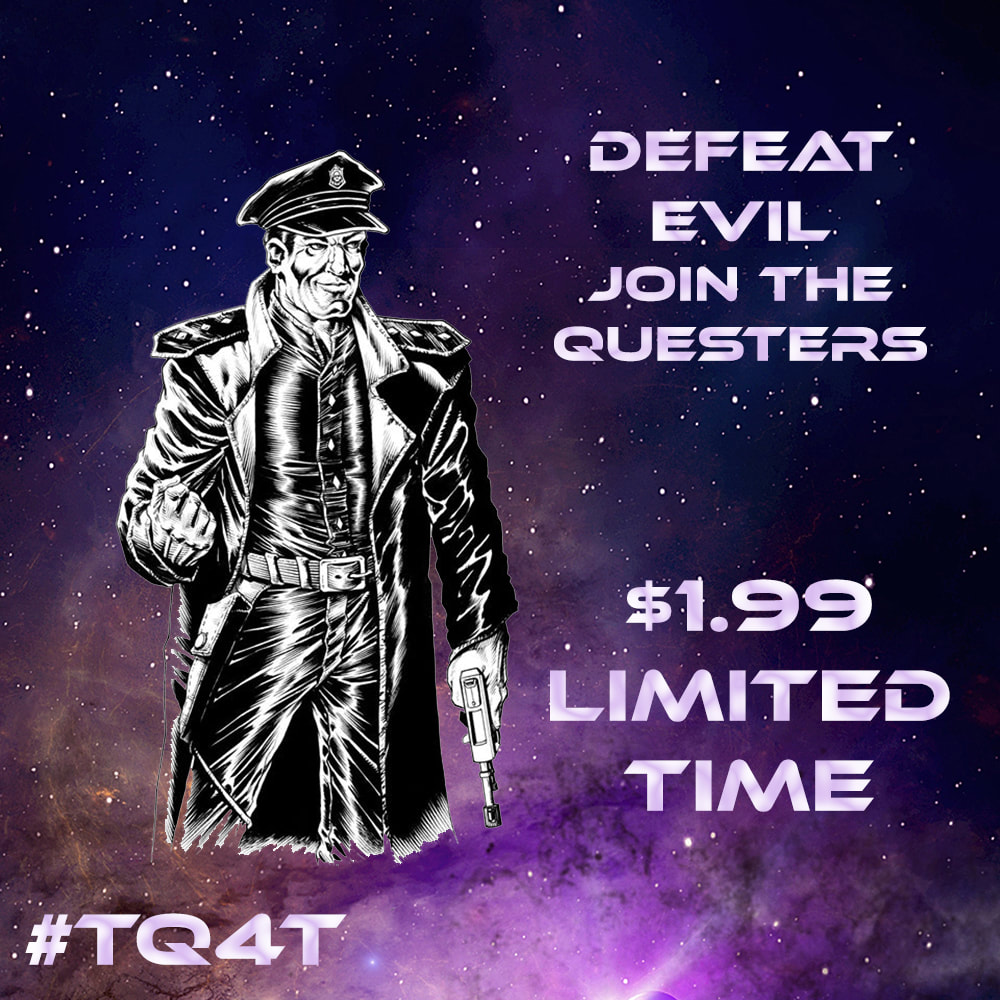
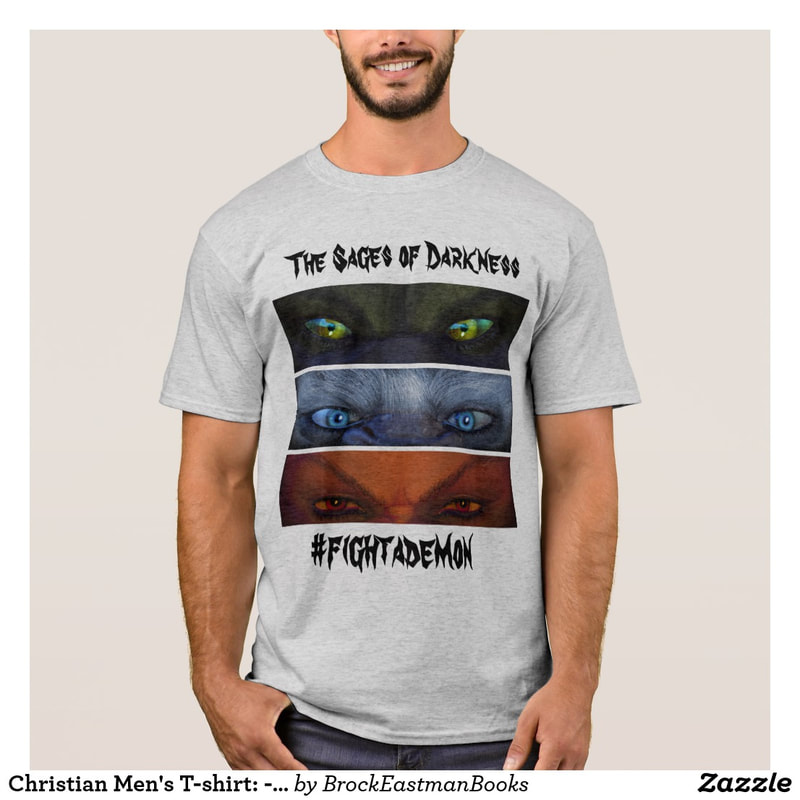

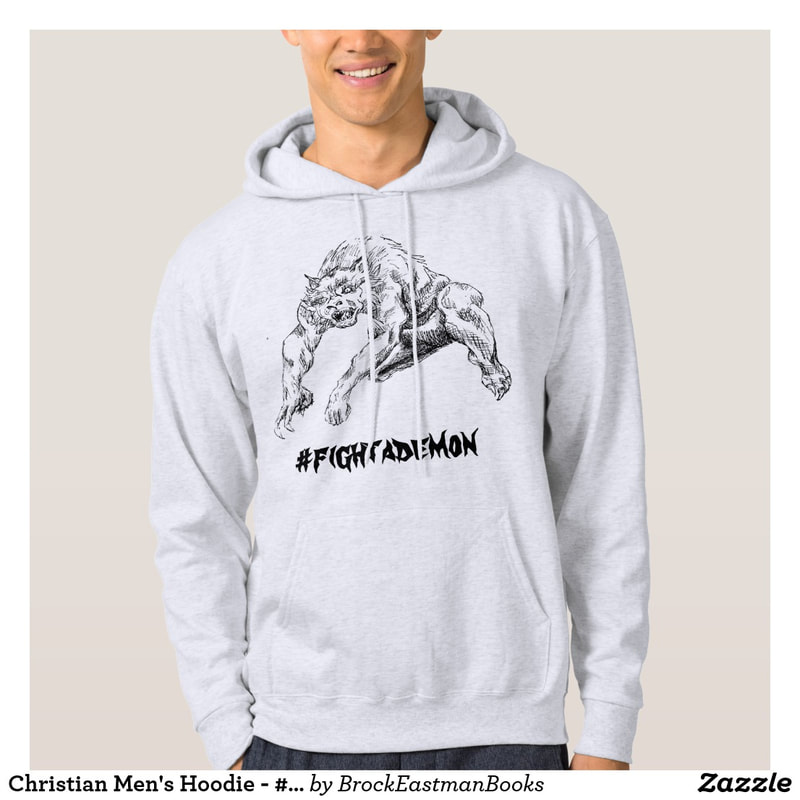
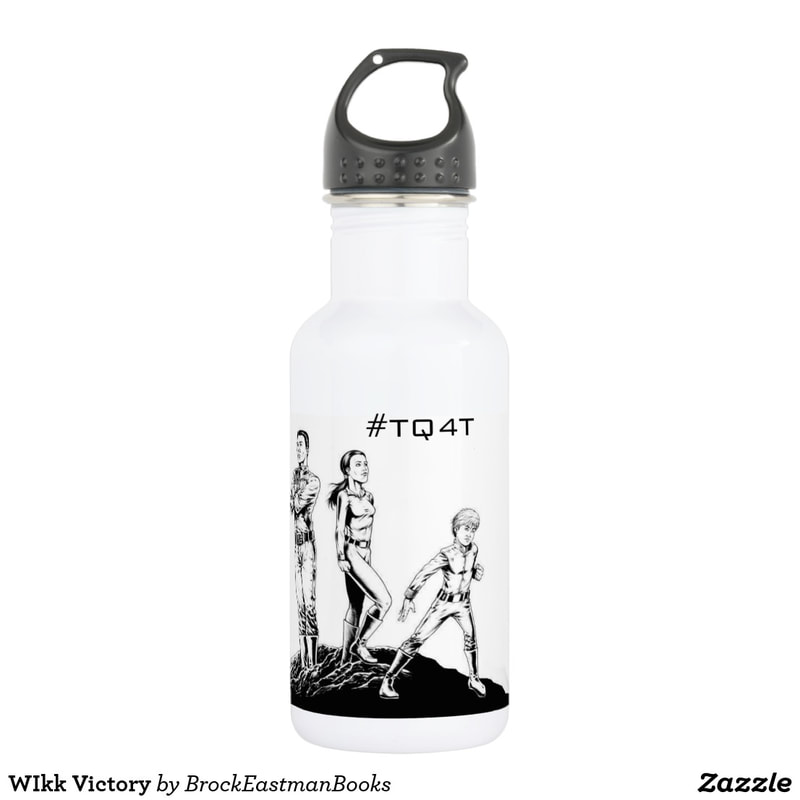
 RSS Feed
RSS Feed